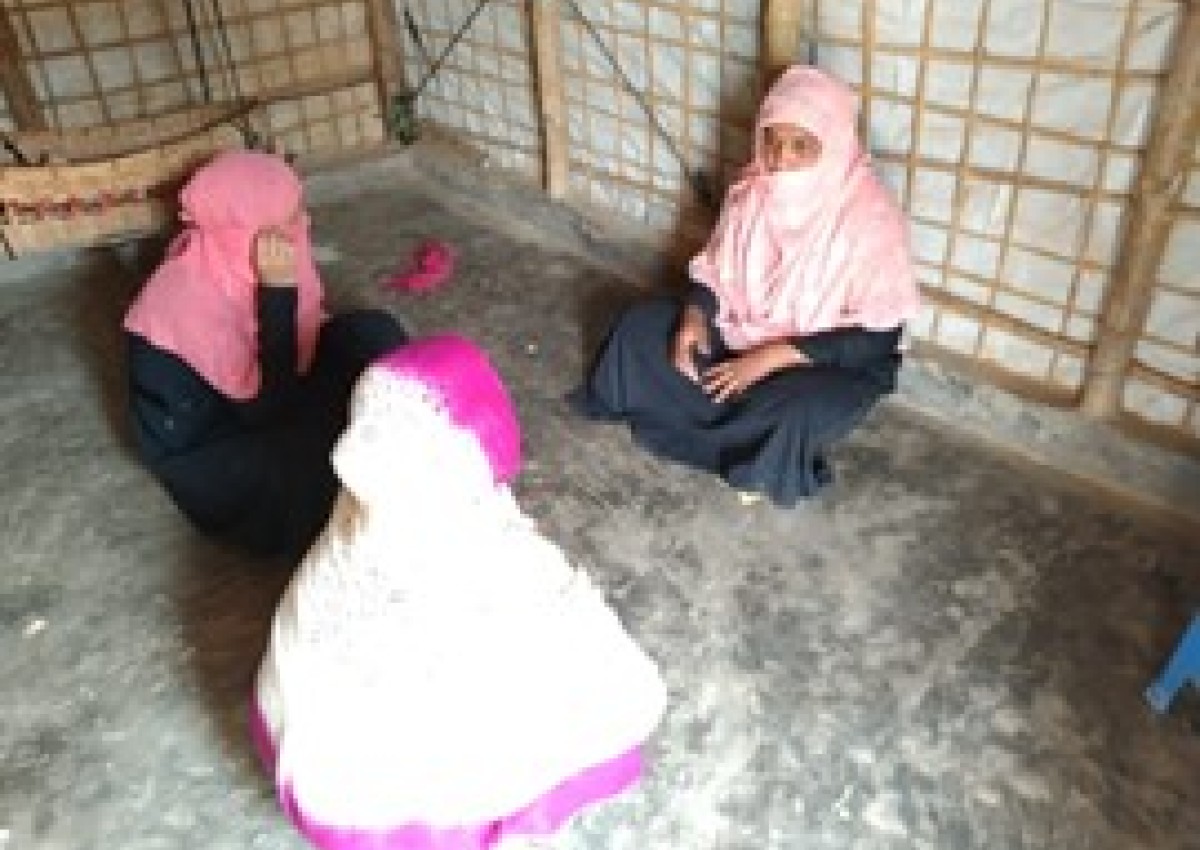





Fatema Begum, Program Participant (Site Management Support) Rohingya Refugee
In the sprawling Rohingya refugee camps, women face a variety of challenges, from harmful social norms to limited livelihood opportunities. Violence against women and girls and sexual exploitation are alarmingly prevalent, perpetuating a cycle of suffering and vulnerability. Rohingya women avoid reporting crimes in fear of further harassment. The stigma surrounding GBV survivors further hinders access to equality. However, amidst these adversities, courageous women are rising, determined to create a better future for themselves and their communities.
Fatema vividly remembers the economic struggles her family endured. "It has always been difficult for my husband to provide a square meal for his family; as my children grew older, my family's needs grew larger. Therefore, I expressed my desire to my husband to work outside. However, I did not receive his support, as he feared the social backlash against women working outside the home. Even when I went to the market to buy groceries, my husband would intervene. Living in such conditions, I started to believe that the kitchen is the only place where women belong, and domestic chores and raising children are their sole responsibilities." she expressed with despair.
the only place where women belong, and domestic chores and raising children are their sole responsibilities." she expressed with despair.
Despite these beliefs, Fatema yearned for economic independence and an opportunity to work outside the home. Encouragement came from her supportive neighbors who suggested seeking assistance from CARE's Site Management Support (SMS) program. Attending their awareness sessions, she discovered a new world of possibilities and began participating in various events organized by CARE in the camps. “I had attended a few of their awareness sessions before and liked their mobile sessions. So, I started participating in a few events organized by CARE in the camp. There, I learned many things I was unaware of in Myanmar.”
Empowered by the knowledge and inspired by her own determination, Fatema convinced her husband to join the sessions as well. Recognizing her potentials and enthusiasm, CARE's SMS program offered her a chance to participate in a skill development training program for women in the camp. Through dedication and perseverance, she eventually became a trainer, passing on her knowledge and empowering other women in her community.
"I truly enjoy teaching other women and contributing to their empowerment. Throughout this journey, I heard numerous whispers and gossip about me working outside. However, my husband is supportive of my endeavors; now I have the confidence to move freely in my community and go to the market by myself.” With her own confidence and support from her family, Fatema navigates her community and the market with a newfound sense of freedom.
Fatema's story is just one among many inspiring narratives of emerging female leadership in the Rohingya refugee camps. Women, actively participating in awareness programs and collaborating with the community, are challenging toxic social norms, and promoting equality for women and men. CARE and similar aid agencies provide critical support for these initiatives, aiming to address the deep-rooted issues faced by Rohingya women.
CARE’s response programs in Rohingya refugee camps are integrated so that aside from GBV consultations, safe spaces, counseling, healthcare facilities, and job opportunities are provided to women of the community to enhance their economic independence and reduce vulnerability to exploitation. Another such initiative is formation of Disaster Management Unit (DMU); working as DMU volunteers and assisting in disaster/emergency response, Rohingya women can generate income. This has increased their potential to participate in the decision-making processes. These interventions, combined with community-led projects, are empowering women to reclaim their dignity in a land far from home.
While some progress is visible, much is still to be done. CARE's SMS program continues to prioritize capacity-building initiatives, ensuring ongoing support and opportunities for these resilient women. By expanding community participation, fostering peaceful co-existence, and strengthening initiatives to reduce tensions, the goal is to create lasting change and improve the lives of all those affected by the Rohingya crisis.
Through their stories, these women send a resounding message to the world-a message of strength, resilience, and determination. They stand as beacons of hope, proving that even in the face of immense challenges, empowerment and transformation are possible.
© Copyright 2026 CARE Bangladesh. Powered By Bangladesh Online